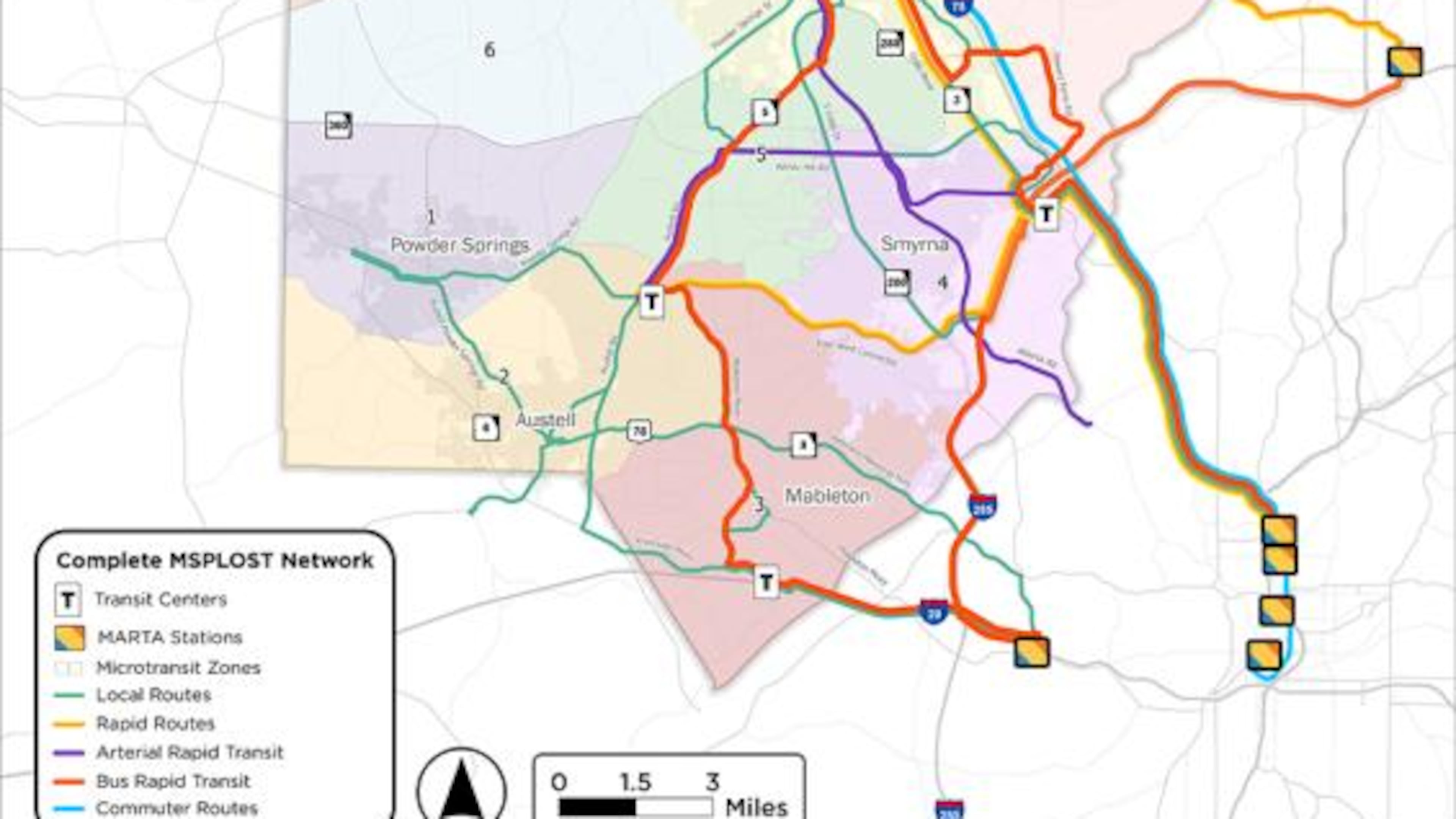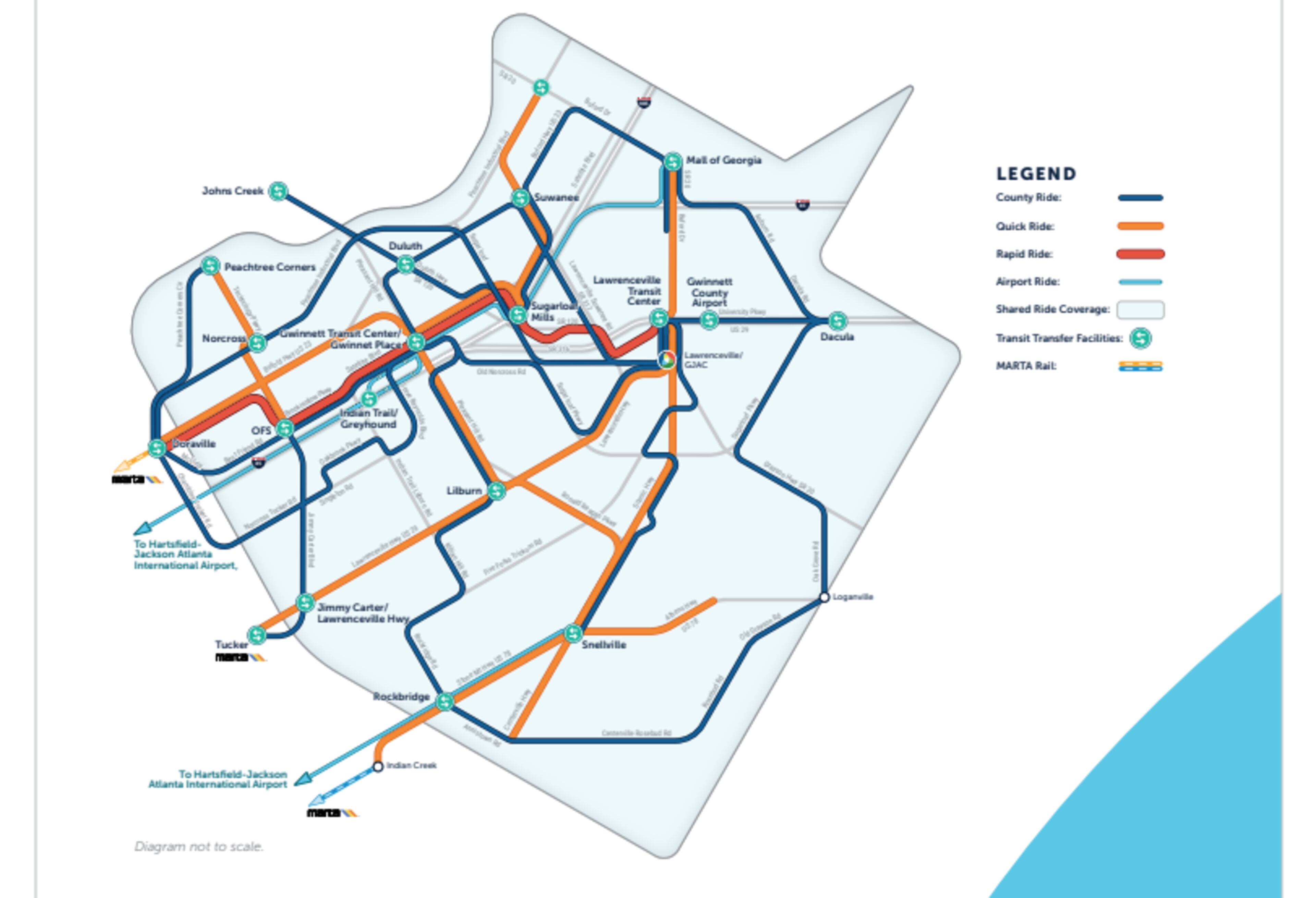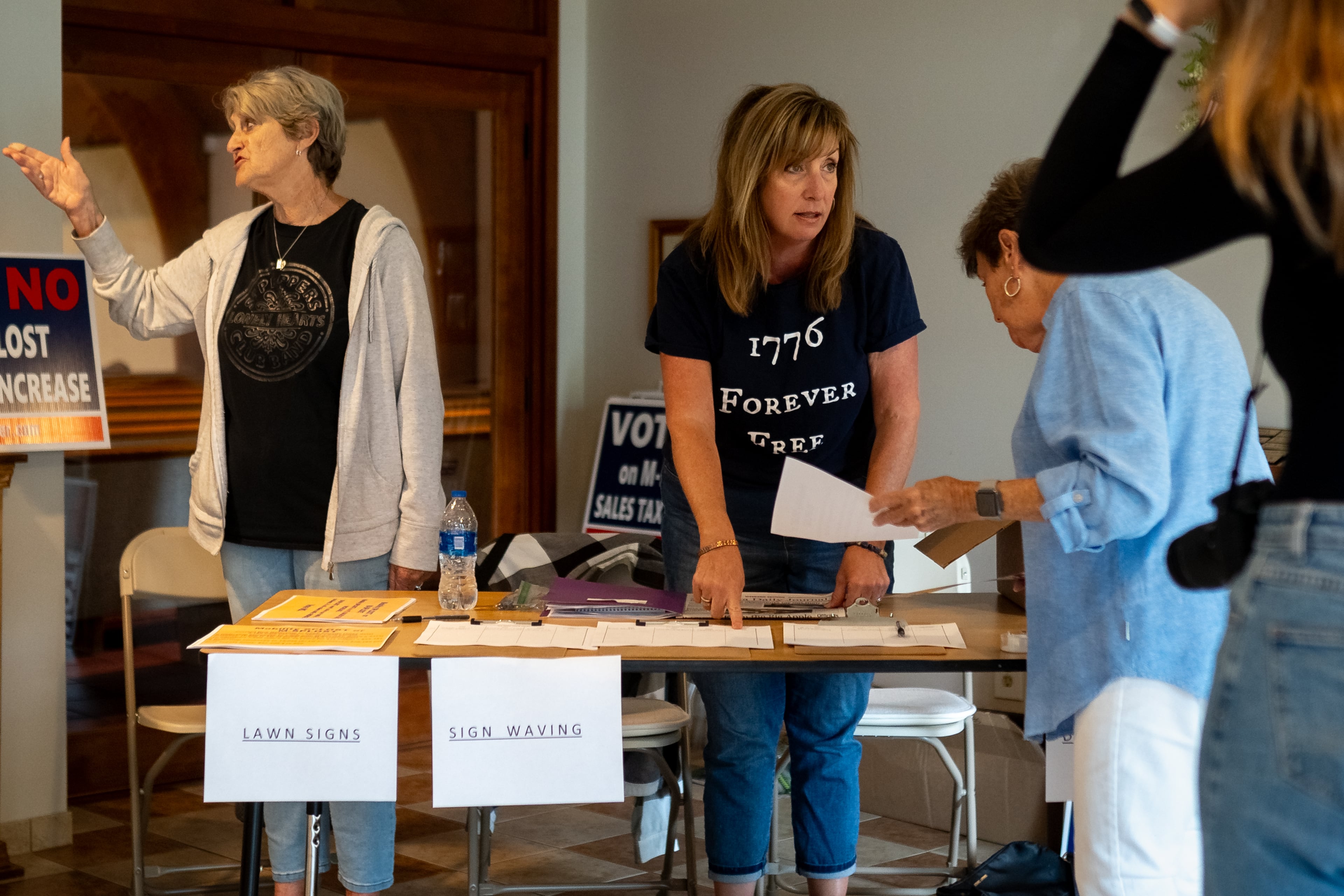Gridlock Guy: Weighing major transit votes in Gwinnett and Cobb

Cobb and Gwinnett voters are voting on a penny tax increase with transportation implications decades down the line. While these decisions make far fewer headlines than the subjects atop the ballot, they have deep implications.
Cobb County’s Mobility SPLOST (MSPLOST) and Gwinnett’s Transit SPLOST 2024 referendums each call for 1% sales taxes over a 30-year period. Cobb’s plan would raise an approximate $11 billion and Gwinnett’s an estimated $12 billion.
Both tax increases would allow Cobb and Gwinnett to implement extensive amounts of Bus Rapid Transit (BRT), Arterial Rapid Transit (ART), and expand existing bus service. Both counties wish to build more transit centers or stations and greatly expand micro-transit, which is essentially a low-price rideshare that could ferry residents from neighborhoods to stops on the larger bus routes.

BRT and ART (which is called Quick Ride or BRT Lite in Gwinnett) operate with more frequency and with greater reliability than local buses, as BRTs have separate lanes. ARTs sometimes have the same, along with queue jumps – or ways to trigger traffic signals to work in their favor. These buses, which some call “light rail on rubber tires,” can carry more people than standard public buses.
Gwinnett voters axed proposed transportation sales taxes in both 2019 and 2020, as those included an interface with MARTA’s heavy rail system. Gwinnett voters also rejected a MARTA expansion into the county decades ago.
Opponents to Cobb County’s MSPLOST have been vocal, noting the length and expense of the tax, along with the decreased ridership on CobbLinc.
Lance Lamberton, chairman of the Cobb Taxpayers Association, has been one of the loudest MSPLOST critics. Lamberton and other critics say that massive transit funding and expansion of this kind are solutions looking for a problem – that Cobb residents largely prefer to stick to their cars.
They argue that more money should be spent on road expansion and improvements for this reason.
Proponents of the taxes refer not to bus ridership numbers, but to the Atlanta Regional Commission’s population projections. ARC predicts Cobb’s population will grow by 20% by 2050 and Gwinnett’s by 25%. As people flock to the Metro Atlanta region and live longer, the older population will be significantly higher by the maturation of the SPLOST plans, meaning seniors will need ways to travel when driving is not safe for them.
The road system is already built out extensively and there is only so much more right of way that the government can afford to buy to expand streets.
But calling Cobb’s MSPLOST a simple expansion of bus services is a misnomer, Rep. Doug Stoner (D-Smyrna) said.
“These bus rapid transit and arterial transit are very elongated buses. They’re more like rail cars. They have sliding doors and things like that,” Stoner told the AJC. “So this is a different type of system and it’s actually a very economical building-out of extensive transit.”
As for the retort to the blowback for expanding a seemingly unpopular bus network: “There’s no ability to build extensive roads anymore,” Stoner said. He argues that light and heavy rail would be extremely expensive, especially since Cobb County has so many hills and ridgelines. “So [BRTs and ARTs are] a lot more affordable and will provide predictable service times for folks.”
Cobb’s proposed system would connect commuters with MARTA in Midtown, West Atlanta, and Sandy Springs. Gwinnett’s would bus people as far south as Doraville, Tucker, and Clarkston.
Skimming the plan, Gwinnett and Cobb appear to be asking voters to approve more buses. A deeper dive shows that many of the lines are heartier and more efficient than traditional bus service. Both counties are upping micro-transit to get riders from their doorstep to the nearest bus stops. They are hoping to expand routes, increase frequency, and add operating hours. And they seek to connect their systems to MARTA.
Voters have a lot to weigh on all phases of the ballot. We all should do our research and not punch buttons with simply a hunch. There is too much at stake for so far into the future to vote with emotion and haste.

Doug Turnbull has covered Atlanta traffic for over 20 years and written “Gridlock Guy” since 2017. Contact him at fireballturnbull@gmail.com.



